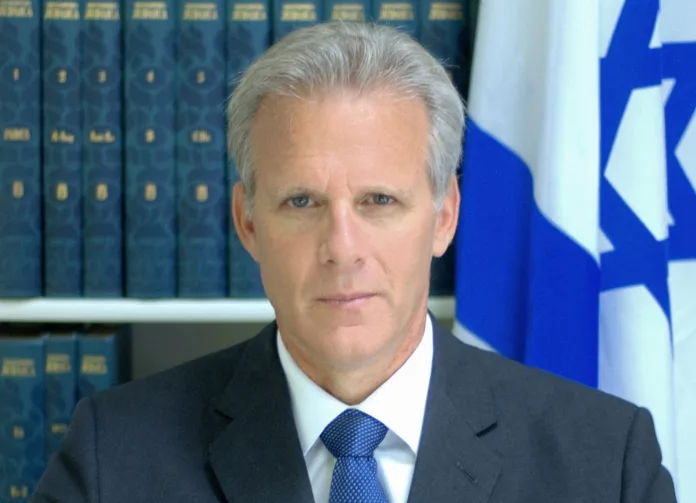Recent pronouncements by former Israeli Ambassador Michael Oren about Iran’s accelerated nuclear capabilities have reignited international concerns over nuclear proliferation and regional security dynamics. His assertion that Iran could achieve nuclear armament within days has stirred fears not only in the Middle East but globally, underscoring the contentious nature of Iran’s nuclear ambitions.
The history of Iran’s nuclear program is steeped in complexity involving multi ple stakeholders, including the United Nations, the European Union, the United States, and neighboring countries like Israel who perceive a nuclear-armed Iran as an existential threat. Diplomatic efforts, notably the 2015 Joint Compre hensive Plan of Action (JCPOA), aimed to curb Iran’s nuclear capability in exchange for lifting economic sanctions. However, the U.S. withdrawal from the agreement in 2018 under President Donald Trump led to a resumption of Iran’s uranium enrichment activities.
Embed from Getty ImagesThe International Atomic Energy Agency (IAEA) plays a crucial role in monitoring Iran’s nuclear activities. Despite strict IAEA inspections, Iran’s actions remain shrouded in secrecy, fueling suspicion about its true intentions. Israeli intelligence often voices strong opposition, citing past incidents where potential nuclear facilities were concealed from inspectors.
Nuclear capabilities extend beyond the scope of weapons. Nuclear power is tied to national pride and deterrence—a view held by Iran’s leadership amidst ongoing pressures from the West. Iran insists its nuclear ambitions are peaceful, aimed at energy independence, yet its reluctance to provide full transparency continues to draw scepticism.
These developments are part of the broader tension between Western powers and countries like Iran, who challenge the perceived double standards in nuclear policy. The geopolitical landscape in the Middle East is acutely sensitive to changes in military capabilities, with shifts potentially destabilizing already fragile balances.Ultimately, the international community faces a delicate balancing act— preventing nuclear proliferation while engaging in pragmatic diplomacy to ensure global security.
Perspectives
Perspective 1: Iran’s nuclear activities present clear security challenges, especially to Israel, which has historically led the charge against Iran’s nuclearization. The Institute for National Security Studies in Tel Aviv out lines Israel’s strategic concerns, suggesting preemptive measures if diplomacy fails. The Jerusalem Post frequently echoes these fears, criticizing the international community’s response to Iran’s manoeuvres and advocat ing for stronger sanctions and military readiness.
Sources:
Perspective 2: Global reaction to Iran’s nuclear advancements varies, with some calling for renewed diplomatic engagement. The European Council on Foreign Relations believes there’s still room for negotiation, ad vocating for a revived JCPOA framework. Reuters has covered European nations’ strategies to keep diplomatic channels open, balancing punitive measures with potential incentives to de-escalate tensions.
Sources:
Perspective 3: Nuclear energy is central to Iran’s narrative of technolog ical advancement and sovereign rights. Analysts from Al Jazeera detail how Iran leverages its nuclear program to assert geopolitical influence and national pride. The Iranian Review of Foreign Affairs argues that Iran’s nuclear endeavors are part of broader efforts to resist Western hegemony and achieve strategic depth in the Persian Gulf.
Sources:
